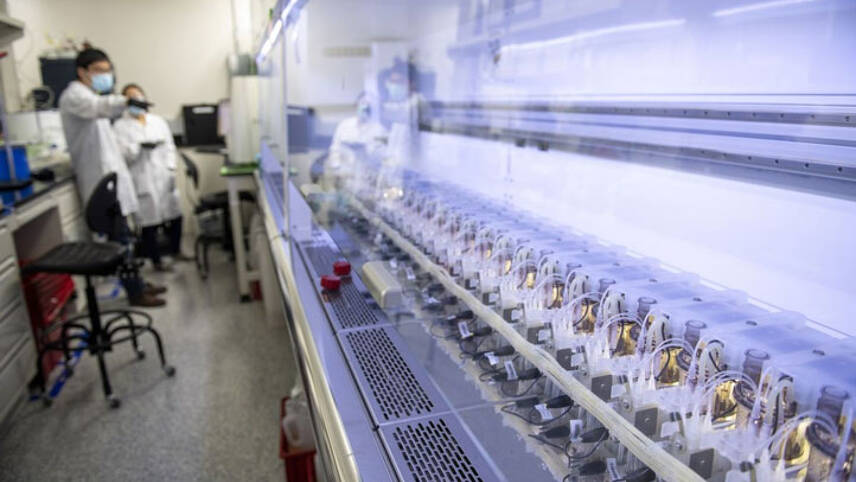Register for free and continue reading
Join our growing army of changemakers and get unlimited access to our premium content

Image: AstraZeneca
This is the first time that companies from across the global healthcare sector – including AstraZeneca, GSK, Novo Nordisk, Roche – have come together to pioneer such initiatives in these countries, in an effort to accelerate the transition to net-zero health systems.
China and India are key markets for pharmaceuticals manufacturing, estimated to account for up to 50% of materials for medicines.
In China, the power agreements would unlock renewable energy in Jiangsu, Guangdong, Shanghai and Beijing.
The agreements are set to bring around 70MW of renewable power annually to the grid from 2024 onwards.
This would result in annual emissions savings of approximately 120,000 tonnes of carbon dioxide equivalents (CO2e), comparable to taking 25,000 cars off the road.
In India, the initiative aims to support suppliers in Gujarat, Karnataka, Madhya Pradesh, Maharashtra and Tamil Nadu.
These collective efforts to progress renewable energy access demonstrate the power of collaboration at scale in these markets, and the convening power of the Sustainable Markets Initiative.
Pascal Soriot – chief executive of AstraZeneca and chair of the Sustainable Markets Initiative Health Systems Task Force – said: “The world has finally woken up to the reality that the climate crisis is also a health crisis. With this realisation must follow bold, scalable action if we are to secure a liveable and sustainable future.
“This announcement sends a positive demand signal for green power, providing a blueprint for others to follow, and underlines the SMI’s commitment to leading the decarbonisation of the healthcare sector.”
World Health Organisation director-general Tedros Adhanom Ghebreyesus pointed out that, globally, the health sector is responsible for approximately 5% of emissions, making it a “significant contributor” to climate change.
“This progress to accelerate the transition to renewable energy in pharmaceutical manufacturing in China and India is welcome news,” he said.
“It complements WHO’s work through the Alliance for Transformative Action on Climate and Health (ATACH), which brings together governments, the private sector and other partners to build climate-resilient and climate-friendly health systems in countries.”
The Health Systems Task Force is a public-private partnership launched at Cop26.
These commitments coincide with COP28 which is being held in Dubai and marks the first global climate conference to have an official focus on health, build on bold action already taken by the group to decarbonise healthcare.
Dubai’s plans for renewables in manufacturing
In related news, Dubai has announced a major new initiative charting an industry-friendly energy policy for the manufacturing sector that will serve to support and accelerate the emirate’s sustainability ambitions.
The initiative also fits in with the emirate’s wider plans to develop a green economy in keeping with the Dubai Economic Agenda 2033 – D33.
The Dubai Electricity and Water Authority PJSC (DEWA) will oversee the Government of Dubai’s ambitious green economy policy for the manufacturing industry, which is to be rolled out from 1 January 2024.
The initiative will enable manufacturers, data centres and agri-tech players to install captive solar generation up to their total connected load, empowering them to meet their own demand while slashing the power costs they would normally incur and achieving a cleaner energy mix.
The power policy will also accord priority to such manufacturers to purchase available international renewable energy certificates (i-RECs), thereby boosting their potential to achieve net-zero goals and sustainability targets.
Factoring in the lower energy costs and higher share of green energy, the DEWA-led initiative is aligned with the Executive Council’s strategic initiatives to boost Dubai’s industrial sector and make the city more competitive in the regional and international markets.
This will also contribute to increased investments from local and international players besides encouraging and attracting manufacturers and the downstream logistics and trade ecosystem to foster stable, secure, and sustainable growth.


Please login or Register to leave a comment.